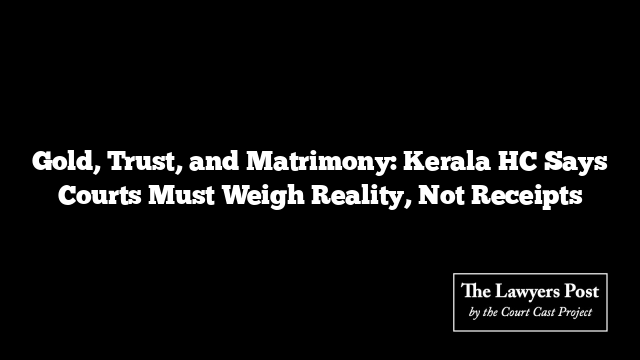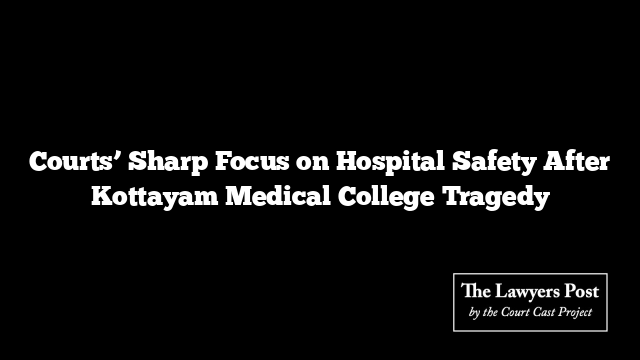In a case that blends the delicate strands of family trust and legal proof, the Kerala High Court has made it clear: a married woman’s claim for return of gold ornaments should not be reduced to a cold demand for receipts and documentation. The emotional and informal realities of matrimonial life deserve a more human lens, the Court said.
Sitting on the bench, Justices Devan Ramachandran and MB Snehalatha drew a sharp line between courtroom rigidity and lived reality. “A newly wedded woman,” the judges noted, “does not walk into her matrimonial home armed with witnesses and bills. She walks in with trust.” And in that trust, she often hands over her wedding jewellery to her husband’s family — not in fear of theft, but as a gesture of belonging.
The Court rejected the idea that such women must prove their claims through “strict proof beyond reasonable doubt,” a standard more fitting for criminal trials. Instead, it emphasized a practical principle: preponderance of probabilities — the notion that the most likely version of events should guide justice.
This ruling came while granting relief to a widow whose gold ornaments, she claimed, were withheld by her in-laws after her husband’s death. She had worn 81 sovereigns of jewellery on her wedding day — gifts from her parents, relatives, and husband — but said they were entrusted to her mother-in-law and brother-in-law after marriage. Following her husband’s suicide abroad and alleged harassment at the hands of her in-laws, she was forced to leave the matrimonial home — without her ornaments.
Though the family court had ordered the return of 53 sovereigns, the in-laws appealed. The High Court examined photos from the wedding and purchase bills submitted by the woman’s father. The judges found the evidence credible — notably, the photographs showed her adorned with substantial gold, and the authenticity of the bills remained largely unchallenged.
The High Court ruled that the mother-in-law must return 53 sovereigns of gold. However, it let the brother-in-law off the hook, accepting his claim that he lived separately and likely never had custody of the jewellery.
In essence, the Court reiterated a larger message for the judiciary: marriage is not a commercial contract. It is rooted in trust. And when that trust breaks, justice must not demand what was never meant to be documented — especially when the truth gleams just beneath the surface.





